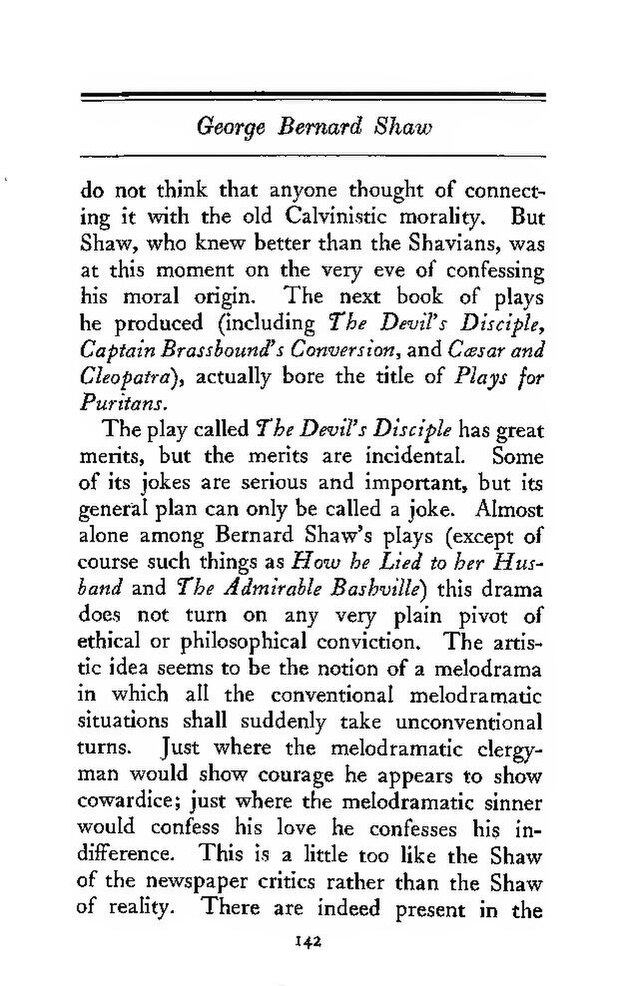do not think that anyone thought of connecting it with the old Calvinistic morality. But Shaw, who knew better than the Shavians, was at this moment on the very eve of confessing his moral origin. The next book of plays he produced (including The Devil's Disciple, Captain Brassbound's Conversion, and Cæsar and Cleopatra), actually bore the title of Plays for Puritans.
The play called The Devil's Disciple has great merits, but the merits are incidental. Some of its jokes are serious and important, but its general plan can only be called a joke. Almost alone among Bernard Shaw's plays (except of course such things as How he Lied to her Husband and The Admirable Bashville) this drama does not turn on any very plain pivot of ethical or philosophical conviction. The artistic idea seems to be the notion of a melodrama in which all the conventional melodramatic situations shall suddenly take unconventional turns. Just where the melodramatic clergyman would show courage he appears to show cowardice; just where the melodramatic sinner would confess his love he confesses his indifference. This is a little too like the Shaw of the newspaper critics rather than the Shaw of reality. There are indeed present in the
142
